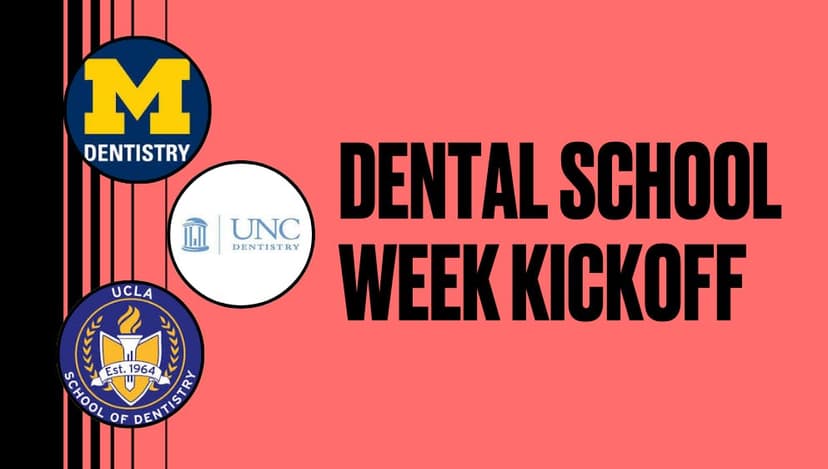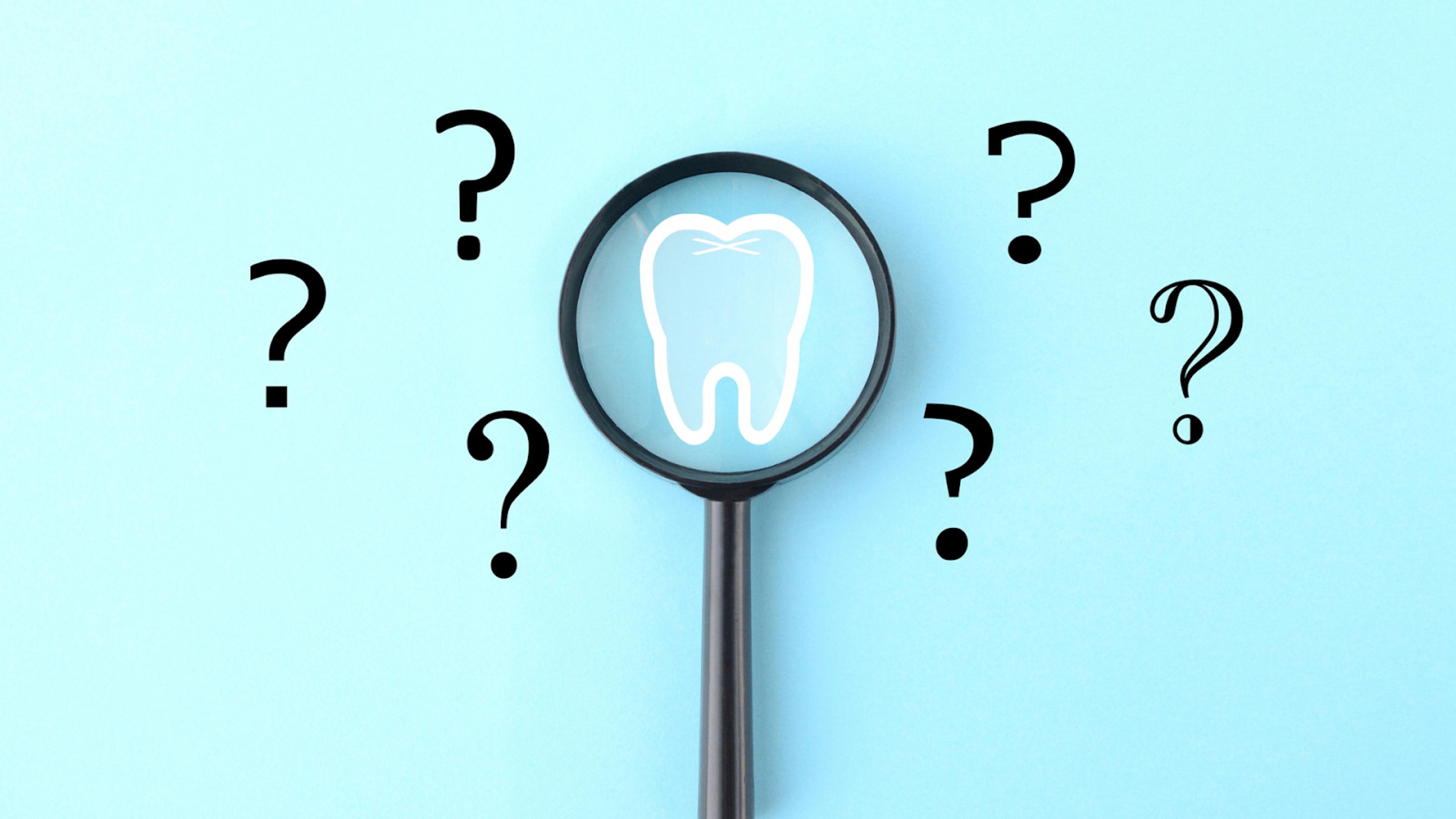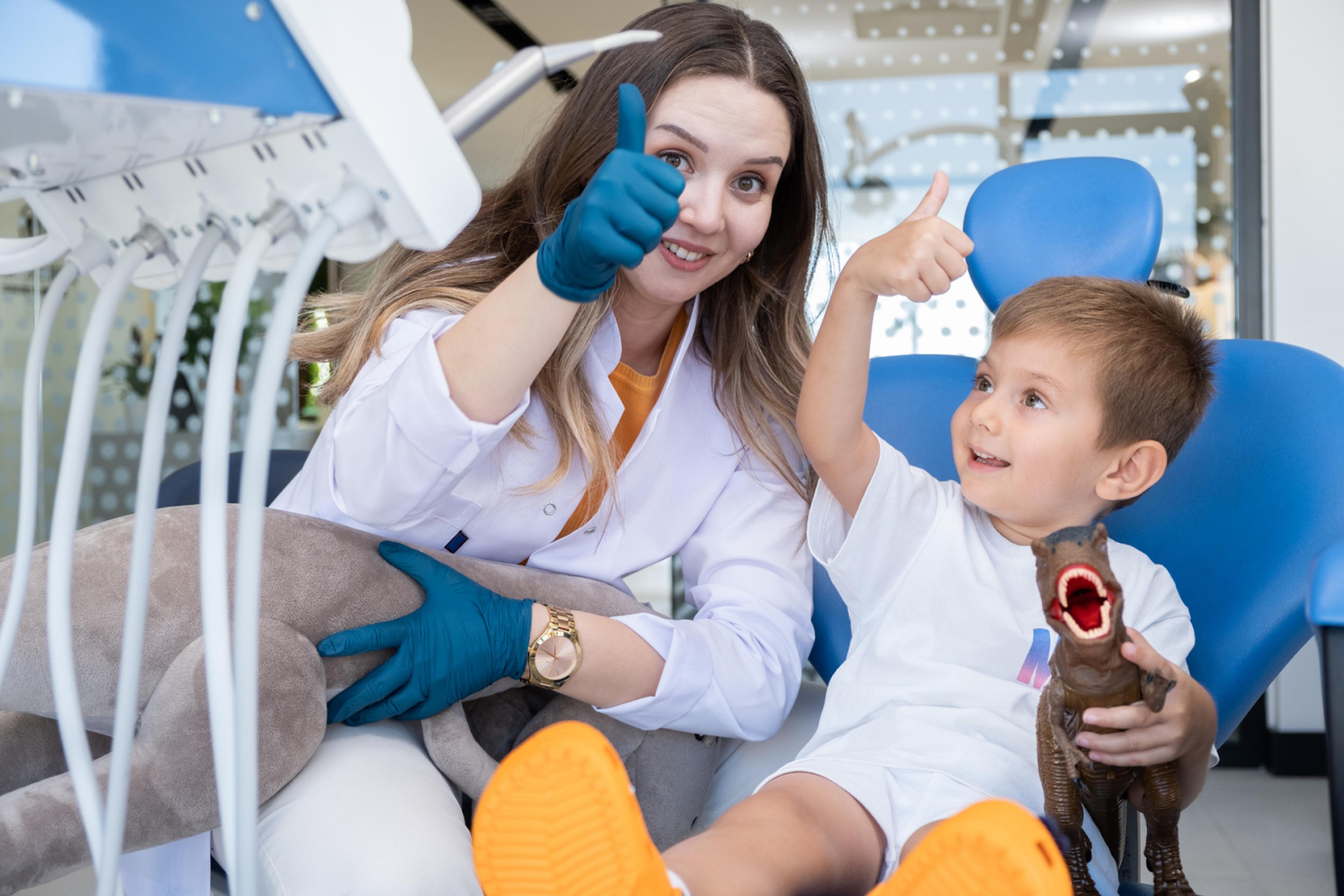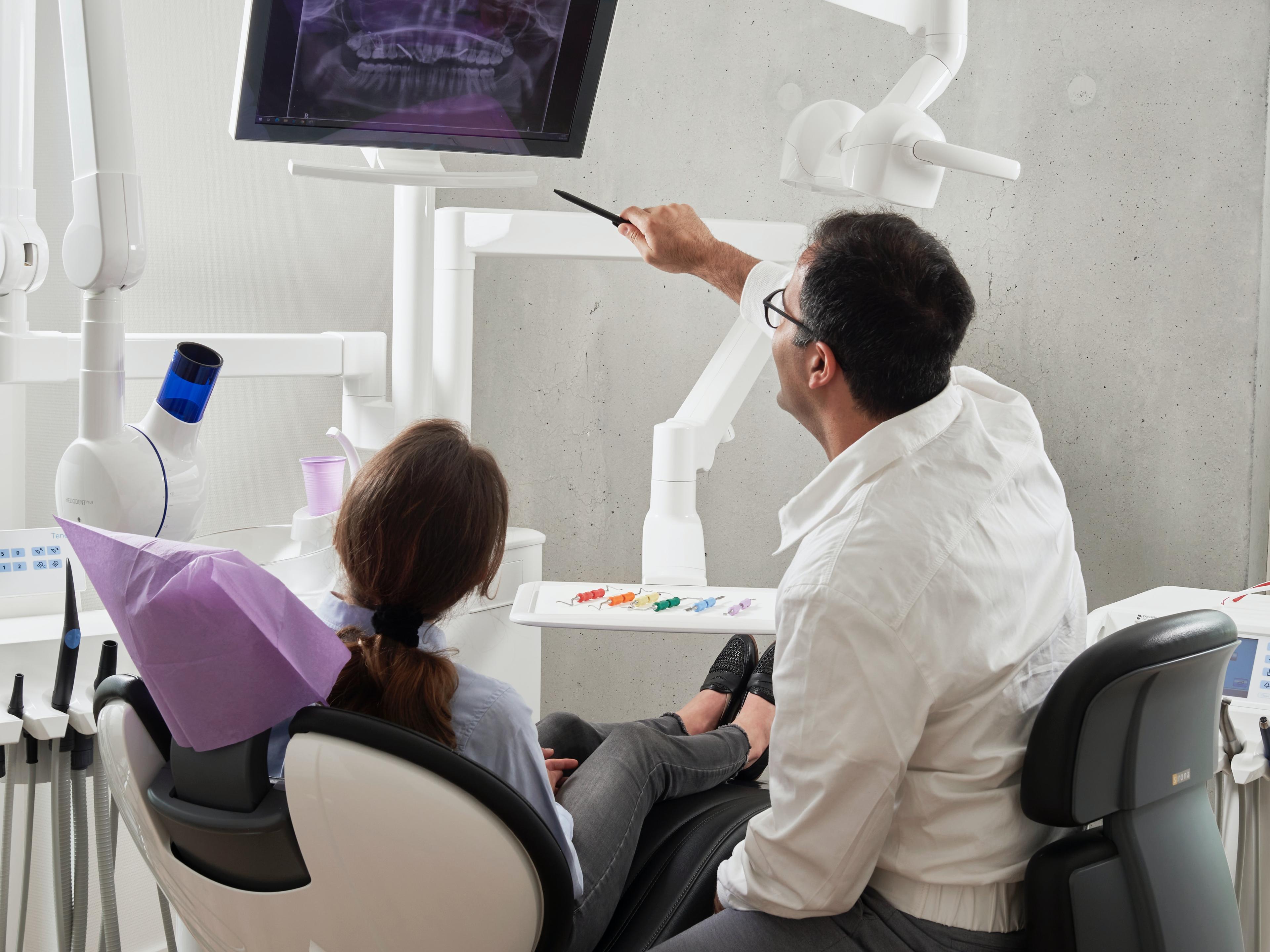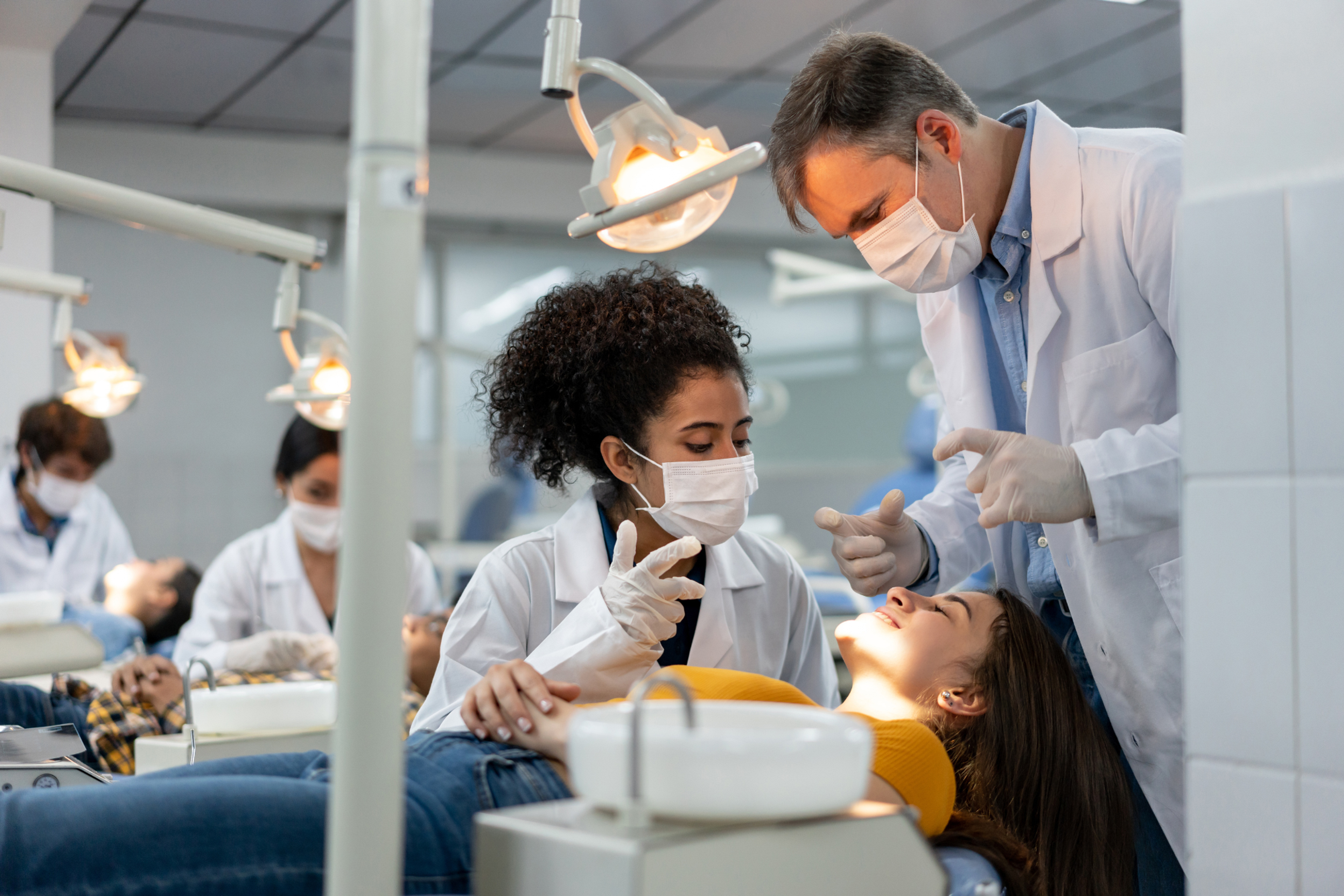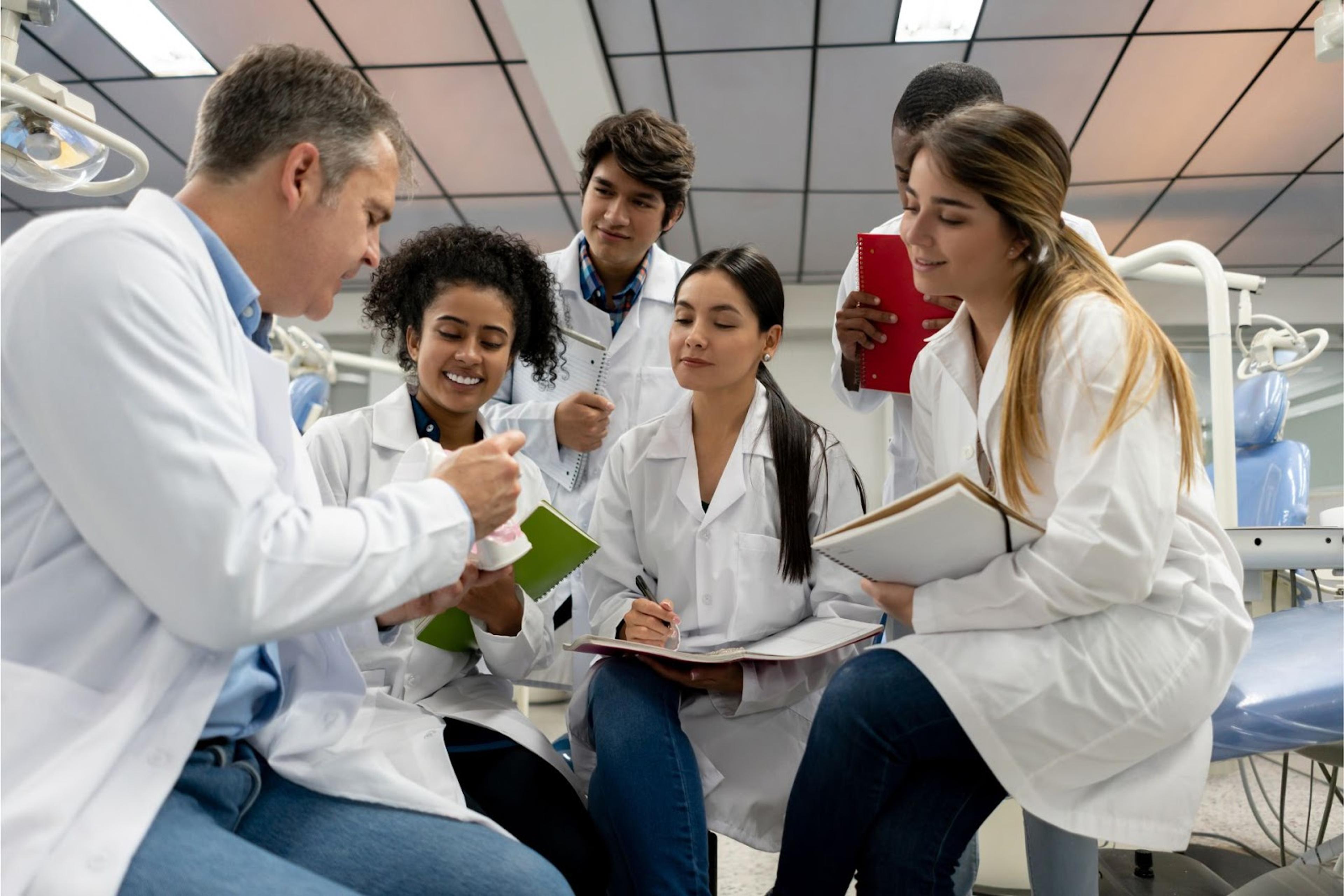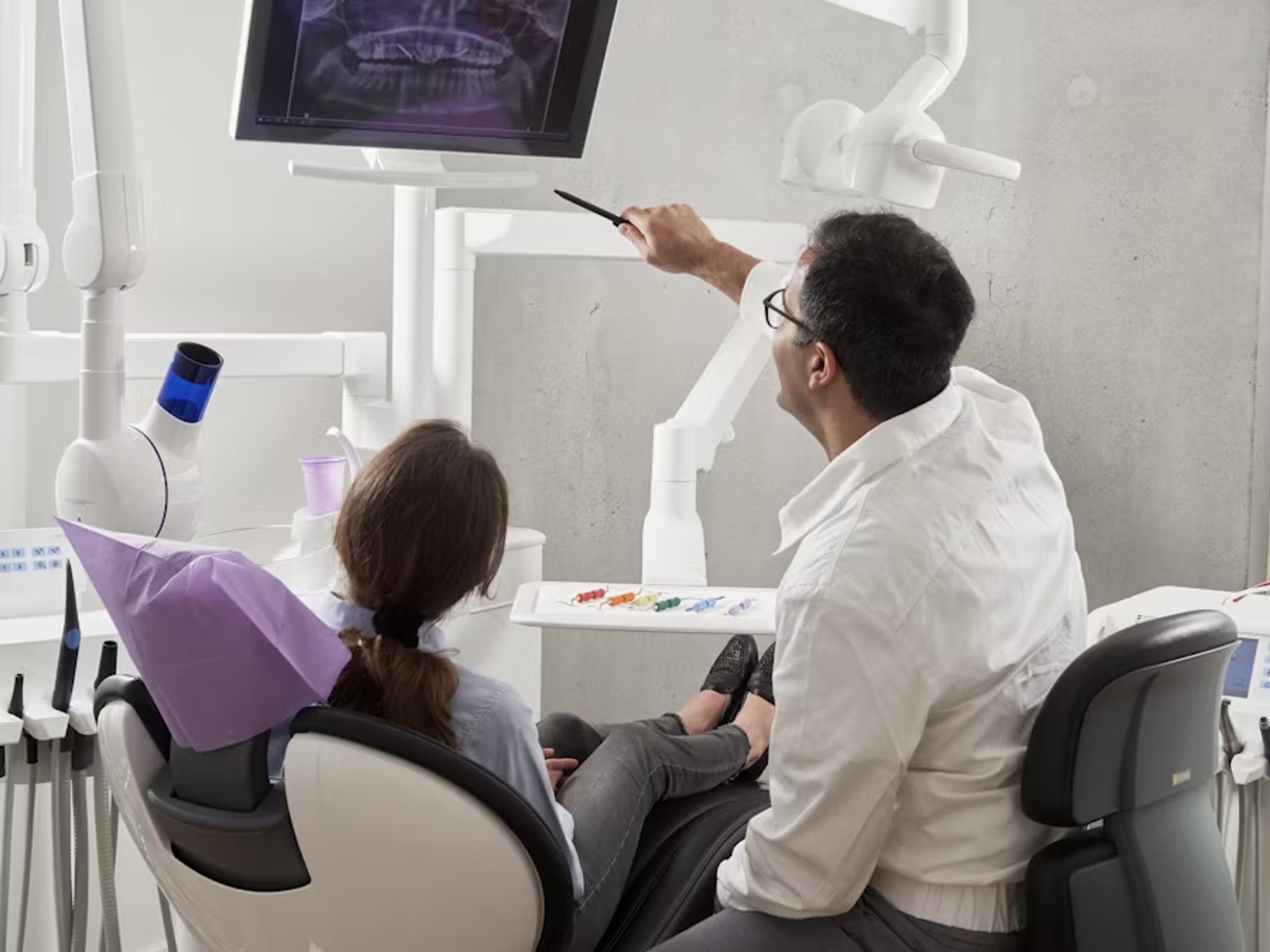Exploring Dental School Curriculums: Courses and Requirements
Thinking about a future filled with flossing and drilling? Dive into this captivating piece as we unravel the intricate web of dental school curricula, equipping you with the knowledge needed to pursue a smile-worthy career in dentistry.
Posted June 13, 2025
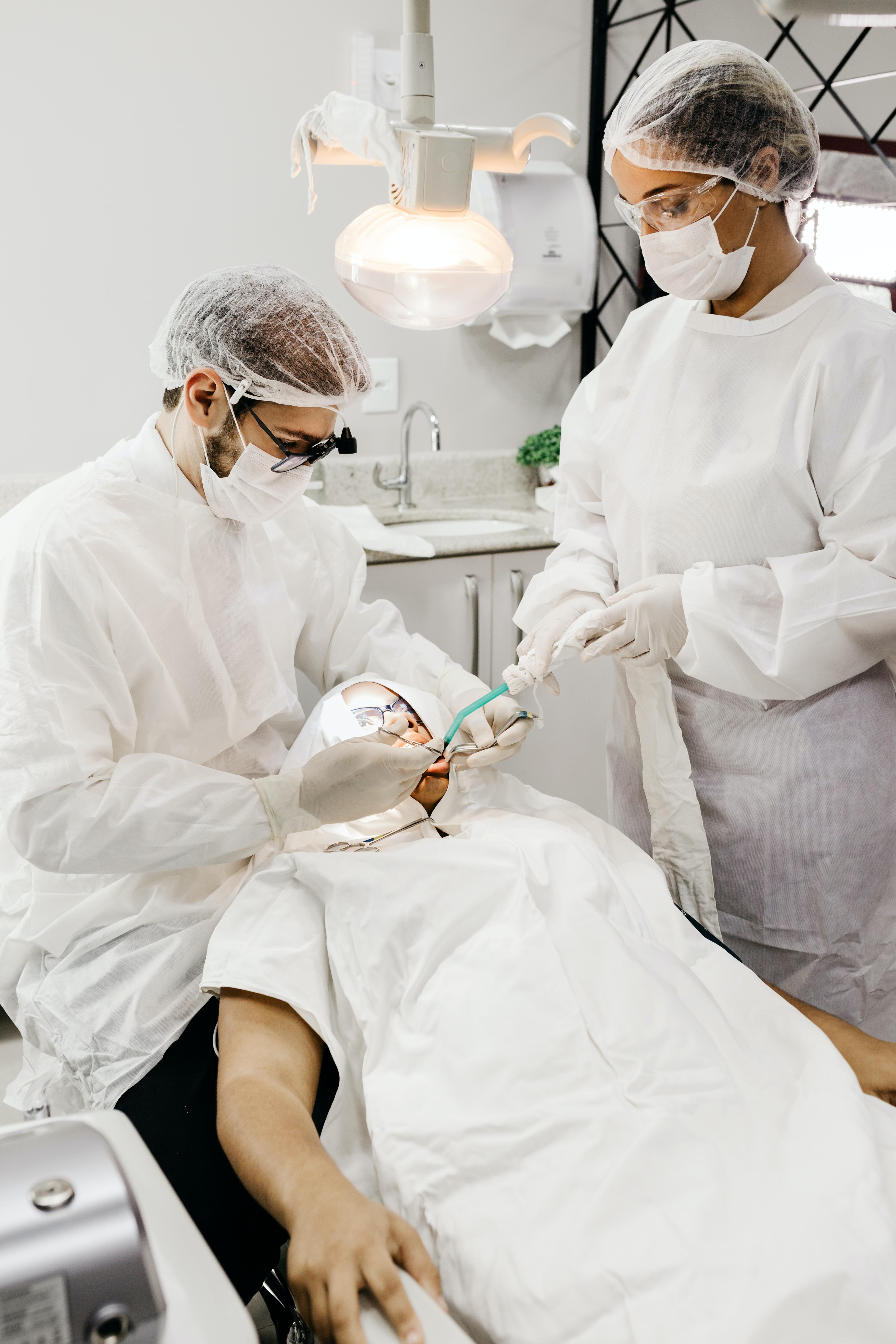
Join a free event
Learn from top coaches and industry experts in live, interactive sessions you can join for free.
Table of Contents
Dental schools offer a unique curriculum that not only trains students on the technical skills needed to become a successful dentist, but also includes courses on ethics, professionalism, and research. In this article, we'll explore the different courses and requirements of dental school programs, as well as the specializations and opportunities available to students. Keep reading to sink your teeth into the tooth-rific world of dentistry!
Introduction to Dental School Programs and Admissions
The first step in pursuing a career in dentistry is to attend an accredited dental school. To be considered for admission, candidates must have completed a Bachelor's degree with a strong academic record in sciences, particularly biology and chemistry, and have passed the Dental Admission Test (DAT).
Want to learn more about preparing for the DAT? Check out these free resources to help you get started on your journey to dental school:
- Teeth, Tests, and Triumphs: A DAT Study Guide Worth Grinning About
- How to Approach Dental Admission Test Practice
- Cavity of Knowledge? Fill It With Our Expert Dental Test Practice Problem Sets
- DAT Prep 101: Tips & Tricks for Success
Once admitted, students can expect to complete a rigorous four-year program that requires both classroom instruction and hands-on clinical experience. Students will be exposed to a variety of courses, including basic sciences, clinical skills, and ethical considerations.
During their time in dental school, students will also have the opportunity to participate in research projects and community outreach programs. These experiences can provide valuable skills and knowledge that can be applied to their future careers as dentists.
Understanding the Core Courses in Dental School Curriculum
One of the core components of dental school curriculums is basic sciences, including anatomy and physiology. These courses provide a foundational understanding of the structures and functions of the body as they relate to dental health.
Other important courses include biochemistry and microbiology. These courses teach students about the microscopic and biochemical aspects of the oral cavity and how they relate to broader health issues. Students will also take courses in dental materials and instrumentation, which includes quality control and safety measures.
In addition to these core courses, dental students will also take courses in dental radiology and imaging. These courses teach students how to interpret and analyze dental images, including X-rays and CT scans. This knowledge is essential for diagnosing and treating dental conditions.
Another important aspect of dental school curriculum is clinical training. Students will spend a significant amount of time in clinics, where they will work with patients under the supervision of licensed dentists. This hands-on experience is crucial for developing the skills and confidence needed to practice dentistry.
Anatomy and Physiology: A Key Component in Dental School Education
Understanding the intricacies of the human body is crucial to becoming a successful dentist. Anatomy and physiology courses provide the foundational knowledge needed to diagnose and treat oral health conditions, including periodontal disease and tooth decay.
During these courses, students will learn about the structures of the head and neck, as well as the physiology of the oral cavity. This includes the function and development of teeth, muscles, nerves, and blood vessels.
Moreover, anatomy and physiology courses also teach dental students about the systemic connections between oral health and overall health. For instance, they learn about the links between periodontal disease and heart disease, diabetes, and other chronic conditions. This knowledge helps dentists to provide comprehensive care to their patients and to educate them about the importance of maintaining good oral hygiene.
Additionally, anatomy and physiology courses provide dental students with a solid foundation for understanding the latest advances in dental technology and techniques. By understanding the underlying biology of the oral cavity, dentists can better evaluate new treatments and technologies and determine which ones are most appropriate for their patients.
Building Blocks of Oral Health: Biochemistry and Microbiology Courses
Biochemistry and microbiology courses teach dental students about the role of microorganisms in oral health and disease, as well as the molecular processes involved in oral health and disease. These courses provide a critical understanding of tooth decay, gum disease, and other common oral health problems.
During these courses, students learn about the physiology and function of microorganisms in the oral cavity, as well as how to diagnose and treat infections.
Furthermore, biochemistry and microbiology courses also cover the importance of nutrition in maintaining good oral health. Students learn about the role of vitamins and minerals in promoting healthy teeth and gums, as well as the impact of a poor diet on oral health. This knowledge is essential for dental professionals to provide comprehensive care to their patients and promote preventive measures to maintain good oral health.
Clinical Skills: Hands-On Training and Practice
Clinical skills courses provide dental students with hands-on training and practice in diagnosing and treating oral health problems. These courses typically involve working with simulated patients and developing a range of clinical skills related to diagnostic assessment and treatment planning, as well as surgical procedures.
Dental students also receive training in communication and patient management, which are considered essential skills when working as a dentist.
Furthermore, clinical skills courses also cover topics such as infection control, radiography, and anesthesia administration. These skills are crucial for ensuring patient safety and comfort during dental procedures. Students learn how to properly sterilize equipment, take accurate X-rays, and administer local anesthesia to numb the area being treated. By mastering these skills, dental students are better equipped to provide high-quality care to their patients.
Dental Materials and Instrumentation: Quality Control and Safety Measures
Dental materials and instrumentation courses provide students with an understanding of the properties and functions of dental materials, as well as how to manage quality control and safety measures in the dental laboratory and dental office settings.
These courses also cover the use of dental materials and instrumentation in procedures such as root canals, tooth restorations, and crown preparations. Safety measures, including managing exposure to radiation and infectious diseases, are also covered in these courses.
Moreover, dental materials and instrumentation courses also teach students about the latest advancements in dental technology and how to incorporate them into their practice. This includes digital imaging, CAD/CAM technology, and 3D printing. Students learn how to use these technologies to improve patient outcomes and increase efficiency in the dental office.
Dental Radiology and Imaging Techniques: Technology in Dentistry
Dental radiology and imaging techniques are critical components of the dental school curriculum. These courses provide students with the knowledge and skills needed to use dental imaging equipment effectively, including X-ray machines and digital imaging technology.
Dental radiology and imaging techniques are used to diagnose oral health problems, including cavities, gum disease, and oral cancer. Students also learn how to manage radiation exposure and how to interpret X-ray and other imaging findings.
Advancements in dental radiology and imaging technology have revolutionized the field of dentistry. Digital imaging technology has replaced traditional X-ray film, providing faster and more accurate results. Cone beam computed tomography (CBCT) is a newer imaging technique that produces 3D images of the teeth, jaw, and surrounding structures, allowing for more precise diagnoses and treatment planning.
Additionally, dental radiology and imaging techniques are not only used for diagnosis, but also for treatment. For example, digital imaging technology can be used to create custom-made dental implants and orthodontic appliances. This technology allows for a more precise fit and better outcomes for patients.
Ethics, Law, and Professionalism in Dentistry
Ethics, law, and professionalism courses are integral to the training of dental students. These courses teach students about the ethical and legal considerations of dental practice, as well as the principles of patient-centered care.
During these courses, students learn about ethical dilemmas related to patient care, as well as legal considerations such as informed consent. They also learn about the importance of maintaining professionalism and providing compassionate care to patients.
Furthermore, these courses also cover the importance of maintaining confidentiality and privacy of patient information. Dental students are taught about the Health Insurance Portability and Accountability Act (HIPAA) and the consequences of violating patient privacy laws. They also learn about the proper handling and disposal of patient records and the importance of securing electronic patient information.
Practical Experience: Clinical Rotations, Internships, and Externships
Practical experience is a critical component of the dental school curriculum. Students complete clinical rotations, internships, and externships during their final year of dental school to gain hands-on experience in real-world dental practice settings.
During these experiences, students work directly with patients and receive immediate feedback from experienced dentists. This practical experience is essential for developing the skills and confidence necessary to practice dentistry independently.
Additionally, these practical experiences provide students with the opportunity to observe and learn from a variety of dental professionals, including specialists in areas such as orthodontics, periodontics, and endodontics. This exposure to different specialties can help students determine their own areas of interest and potential career paths within dentistry.
Furthermore, clinical rotations, internships, and externships often take place in underserved communities, providing students with the opportunity to give back and serve those in need. This not only allows students to apply their skills in a meaningful way, but also instills a sense of social responsibility and community engagement that can carry over into their future dental practice.
After Dental School
Specializations in Dentistry: Orthodontics, Endodontics, Prosthodontics, Periodontics
After completing dental school, students can pursue advanced training in a variety of specialized fields, including orthodontics, endodontics, prosthodontics, and periodontics.
These specializations require additional training beyond dental school, which can take several years to complete. Specialization allows dentists to focus their practice on a certain area of oral health care, which can be particularly helpful in treating complex cases or rare conditions.
Research Opportunities for Dental Students: Projects and Publications
Dental students also have the opportunity to participate in research projects and publish findings in academic journals. These projects can help students develop critical thinking and problem-solving skills, as well as provide opportunities to stay up-to-date on the latest advancements in dental research.
Preparing for a Career in Dentistry: Licensing Requirements and Continuing Education
After completing dental school, graduates must pass a licensing exam to practice dentistry. Each state has its own licensing requirements, so students should research the requirements of the state in which they plan to practice.
Continuing education is also an important aspect of maintaining a successful career in dentistry. Dental professionals must stay up-to-date on the latest research and advancements in the field, as well as maintain a commitment to lifelong learning and professional development.
Conclusion: The Future of Dental Education
The field of dentistry is constantly evolving, with new technologies and techniques emerging all the time. As a result, dental education must also continue to evolve to keep pace with these changes.
By providing students with a strong foundation in basic sciences, clinical skills, and ethical considerations, dental school programs prepare the next generation of dentists to meet the needs of their patients and advance the field of oral health care.
Browse hundreds of expert coaches
Leland coaches have helped thousands of people achieve their goals. A dedicated mentor can make all the difference.



